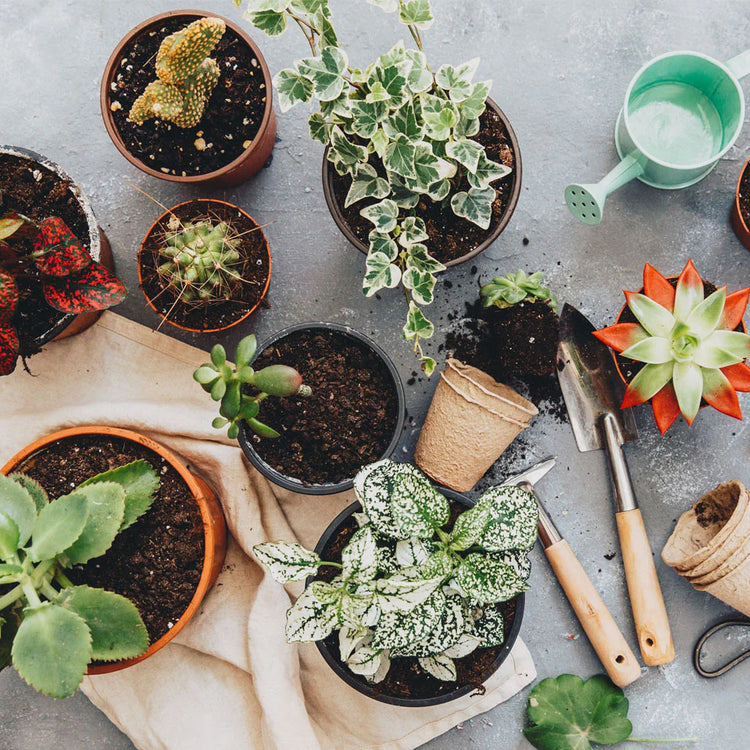C. maxima. Dill's Atlantic Giant pumpkin seeds hold the world record for giant pumpkins, producing the largest fruit in the plant kingdom. Developed by Howard Dill in eastern Canada, these pumpkins can reach over 1,000 lbs, with the current record at 2,624.6 lbs! These colossal pumpkins resemble big orange Volkswagen Beetles and grow on extensive plants with vines up to 50' long. They require ample space, full sun, and fertile soil. For optimal size, prepare a 20x20 feet growing area, enriched with composted manure and glacial rock dust, and feed with balanced organic fertilizer and liquid kelp or fish fertilizer every two weeks.
Matures in 110 days (Open-pollinated seeds).
Key Features:
- World record-holding giant pumpkins
- Vines extend up to 50' long
- Potential to reach over 1,000 lbs
- Open-pollinated seeds
- Matures in 110 days
Difficulty:
Easy, but requires substantial space.
Season & Zone:
- Season: Warm season
- Exposure: Full sun
Timing:
Direct sow or transplant in late spring when the soil warms up. For transplants, start seeds indoors 4-6 weeks after the last frost date. Aim to plant them in the ground by the summer solstice. Optimal soil temperature for germination: 25-35°C (68-95°F). Seeds should sprout in 7-14 days.
Starting:
Sow seeds 2cm (1″) deep. Plant 3 seeds in each spot and thin to the strongest plant. Space plants at least 90-120cm (36-48″) apart in rows 120-180cm (48-72″) apart. For indoor starts, use 12-cell plug inserts.
Growing:
Ideal pH: 6.0-6.8. These plants need plenty of food. Choose a sunny spot with fertile, well-draining soil, and add compost or composted manure. Dig in 1 cup of complete organic fertilizer under each plant. Pumpkins initially produce male flowers, followed by female flowers requiring bee pollination. Remove small, misshapen fruits to avoid rot.
Feed weekly with fish or kelp-based fertilizer. Water well, especially in hot weather, avoiding overhead watering. For the largest pumpkins, keep only one fruit per vine and encourage it to grow at a 90° angle to the vine.
Harvest:
Pumpkins are mature when well-colored and stems are crisp. For best sugar content, cut the stem 4cm (2″) from the fruit. Cure in the field for 10 days in dry weather or in a warm room for 4-5 days. Bring indoors before rain.
Seed Info:
In optimal conditions, at least 80% of seeds will germinate. Usual seed life: 2 years. Per 100′ row: 60 seeds, per acre: 6.5M seeds.
Diseases & Pests:
- Powdery Mildew: Causes white spots on leaves late in the season. Use home-sprays at 7-10 day intervals: 1 tsp baking soda in 1 quart water with a squirt of dish soap, or 1 part milk to 9 parts water. Add a little kelp-based fertilizer if desired. Resistant varieties get mildew slightly later than others.
Companion Planting:
Great companions for corn, beans, radishes, marigolds, nasturtiums, and oregano. Avoid planting near potatoes.
Selected page contains no content. Add content to this page in the page editor.
C. maxima. Dill's Atlantic Giant pumpkin seeds hold the world record for giant pumpkins, producing the largest fruit in the plant kingdom. Developed by Howard Dill in eastern Canada, these pumpkins can reach over 1,000 lbs, with the current record at 2,624.6 lbs! These colossal pumpkins resemble big orange Volkswagen Beetles and grow on extensive plants with vines up to 50' long. They require ample space, full sun, and fertile soil. For optimal size, prepare a 20x20 feet growing area, enriched with composted manure and glacial rock dust, and feed with balanced organic fertilizer and liquid kelp or fish fertilizer every two weeks.
Matures in 110 days (Open-pollinated seeds).
Key Features:
- World record-holding giant pumpkins
- Vines extend up to 50' long
- Potential to reach over 1,000 lbs
- Open-pollinated seeds
- Matures in 110 days
Difficulty:
Easy, but requires substantial space.
Season & Zone:
- Season: Warm season
- Exposure: Full sun
Timing:
Direct sow or transplant in late spring when the soil warms up. For transplants, start seeds indoors 4-6 weeks after the last frost date. Aim to plant them in the ground by the summer solstice. Optimal soil temperature for germination: 25-35°C (68-95°F). Seeds should sprout in 7-14 days.
Starting:
Sow seeds 2cm (1″) deep. Plant 3 seeds in each spot and thin to the strongest plant. Space plants at least 90-120cm (36-48″) apart in rows 120-180cm (48-72″) apart. For indoor starts, use 12-cell plug inserts.
Growing:
Ideal pH: 6.0-6.8. These plants need plenty of food. Choose a sunny spot with fertile, well-draining soil, and add compost or composted manure. Dig in 1 cup of complete organic fertilizer under each plant. Pumpkins initially produce male flowers, followed by female flowers requiring bee pollination. Remove small, misshapen fruits to avoid rot.
Feed weekly with fish or kelp-based fertilizer. Water well, especially in hot weather, avoiding overhead watering. For the largest pumpkins, keep only one fruit per vine and encourage it to grow at a 90° angle to the vine.
Harvest:
Pumpkins are mature when well-colored and stems are crisp. For best sugar content, cut the stem 4cm (2″) from the fruit. Cure in the field for 10 days in dry weather or in a warm room for 4-5 days. Bring indoors before rain.
Seed Info:
In optimal conditions, at least 80% of seeds will germinate. Usual seed life: 2 years. Per 100′ row: 60 seeds, per acre: 6.5M seeds.
Diseases & Pests:
- Powdery Mildew: Causes white spots on leaves late in the season. Use home-sprays at 7-10 day intervals: 1 tsp baking soda in 1 quart water with a squirt of dish soap, or 1 part milk to 9 parts water. Add a little kelp-based fertilizer if desired. Resistant varieties get mildew slightly later than others.
Companion Planting:
Great companions for corn, beans, radishes, marigolds, nasturtiums, and oregano. Avoid planting near potatoes.
Selected page contains no content. Add content to this page in the page editor.


